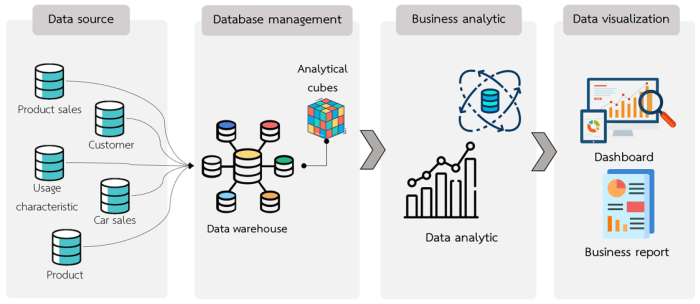
Beginning with Market Analysis for Small Businesses, this introductory paragraph aims to provide an engaging overview of the importance and benefits of conducting market analysis for small businesses. It will also touch upon the different types of market analysis methods and how they can be applied effectively.
Importance of Market Analysis

Market analysis is a crucial process for small businesses as it provides valuable insights into the industry, competition, target market, and overall business environment. By conducting market analysis, small businesses can make informed decisions that can impact their growth and success in the long run.
Identifying Market Opportunities
Market analysis helps small businesses identify new opportunities for growth and expansion. By analyzing market trends, customer preferences, and competitor strategies, businesses can uncover gaps in the market that they can capitalize on. For example, a small bakery conducting market analysis may discover a growing demand for gluten-free products in their area, prompting them to introduce a new product line to cater to this market segment.
Understanding Customer Needs
By conducting market analysis, small businesses gain a better understanding of their target customers’ needs, preferences, and behavior. This information allows businesses to tailor their products or services to meet customer expectations, ultimately leading to increased customer satisfaction and loyalty. For instance, a small online clothing store may use market analysis to identify popular fashion trends among their target demographic and adjust their inventory accordingly.
Competitive Insights
Market analysis also provides small businesses with valuable insights into their competitors’ strengths, weaknesses, and strategies. By analyzing competitor performance, pricing, and marketing tactics, businesses can identify areas where they can differentiate themselves and gain a competitive advantage. For example, a small landscaping company may conduct market analysis to assess competitors’ pricing structures and service offerings, allowing them to position themselves as a more affordable and high-quality alternative in the market.
Types of Market Analysis
Market analysis is crucial for small businesses to understand their target market and make informed decisions. There are different types of market analysis methods that can be utilized, each with its own set of benefits and applications.
Qualitative Market Analysis
Qualitative market analysis involves gathering non-numerical data to understand customer behavior, preferences, and perceptions. This type of analysis focuses on the quality of information rather than quantifiable metrics. Small businesses can conduct qualitative market analysis through methods such as surveys, focus groups, and interviews. For example, a small clothing boutique can use focus groups to gather feedback on new clothing designs and understand customer preferences.
Quantitative Market Analysis
Quantitative market analysis involves using numerical data and statistical methods to analyze market trends, customer demographics, and competition. This type of analysis focuses on measurable data points to identify patterns and make data-driven decisions. Small businesses can conduct quantitative market analysis through methods such as surveys, data analytics, and market research reports. For instance, a small software company can analyze customer data to identify trends in software usage and preferences.
Comparing and Contrasting
Qualitative market analysis provides in-depth insights into customer preferences and behavior, allowing small businesses to understand the “why” behind customer decisions. On the other hand, quantitative market analysis offers statistical validation and measurable results, providing a more objective view of the market landscape. By combining both qualitative and quantitative market analysis approaches, small businesses can gain a comprehensive understanding of their target market and make strategic decisions to drive growth and profitability.
Conducting Market Research

Market research is a crucial step for small businesses to understand their target customers, competition, and industry trends. By conducting thorough market research, businesses can make informed decisions and develop effective strategies to reach their goals.
Identifying Target Market Segments
- Define your business objectives: Clearly Artikel what you want to achieve through market research, such as identifying new opportunities or understanding customer preferences.
- Collect demographic data: Gather information about your target customers’ age, gender, income level, location, and other relevant characteristics.
- Analyze psychographic factors: Consider your customers’ values, interests, lifestyles, and buying behaviors to create more targeted marketing strategies.
- Segment your market: Divide your target market into distinct groups based on similarities in needs, preferences, or behaviors to tailor your products or services effectively.
Collecting and Analyzing Market Data
- Utilize online surveys and questionnaires: Gather feedback from customers to understand their satisfaction levels, preferences, and suggestions for improvement.
- Monitor social media platforms: Analyze conversations, comments, and feedback on social media to gauge customer sentiment and identify emerging trends.
- Competitor analysis: Study your competitors’ products, pricing strategies, marketing tactics, and customer reviews to identify opportunities for differentiation.
- Industry reports and trends: Stay updated on industry reports, market trends, and forecasts to anticipate changes and adapt your strategies accordingly.
Understanding Market Volatility
Market volatility refers to the unpredictable and erratic changes in the price and value of assets in the market. This can have a significant impact on small businesses, affecting their revenue, profitability, and overall success. It is crucial for small businesses to understand market volatility and be prepared to adapt to these fluctuations in order to thrive in a competitive environment.
Impact on Small Businesses
Market volatility can pose challenges for small businesses in various ways. For example, sudden changes in consumer demand, inflation rates, or interest rates can directly impact the sales and cash flow of a small business. Additionally, fluctuations in the stock market or currency exchange rates can affect the cost of goods, making it difficult for small businesses to maintain pricing strategies and profitability.
- Increased risk: Market volatility can expose small businesses to higher levels of risk, making it harder to predict future outcomes and make informed decisions.
- Financial instability: Small businesses may face financial instability during periods of market volatility, as they struggle to manage cash flow and maintain profitability.
- Competitive pressures: Market volatility can also intensify competition among small businesses, as they try to adapt to changing market conditions and consumer preferences.
Strategies for Adaptation
One strategy for small businesses to adapt to market volatility is to diversify their product offerings or target markets. By expanding their range of products or services, small businesses can reduce their reliance on a single market and mitigate the impact of fluctuations in demand or pricing.
Another strategy is to maintain a strong financial position by building up cash reserves or securing lines of credit. This can help small businesses weather financial challenges during periods of market volatility.
- Stay informed: Small businesses should stay informed about market trends, economic indicators, and competitor activities to anticipate potential changes and adjust their strategies accordingly.
- Flexibility: Being flexible and agile in response to market volatility is essential for small businesses. They should be prepared to pivot their business model, pricing strategies, or marketing efforts to adapt to changing market conditions.
- Seek professional advice: Small businesses can benefit from seeking advice from financial advisors, industry experts, or business consultants to navigate market volatility and make informed decisions.
Influence on Decision-Making
Market volatility can influence decision-making in small businesses in several ways. For instance, during periods of high volatility, small businesses may choose to delay expansion plans, cut costs, or adjust pricing strategies to mitigate risks and preserve cash flow. Additionally, market volatility can impact investment decisions, hiring practices, and overall business growth strategies.Overall, understanding market volatility and implementing effective strategies to adapt to these fluctuations are essential for small businesses to thrive in a dynamic and competitive market environment.
In conclusion, Market Analysis for Small Businesses is essential for navigating the ever-changing business landscape. By understanding market volatility and conducting thorough research, small businesses can make informed decisions and stay competitive.
Popular Questions
Why is market analysis important for small businesses?
Market analysis helps small businesses understand their target audience, competition, and industry trends, enabling them to make strategic decisions.
What are the types of market analysis methods suitable for small businesses?
Small businesses can utilize methods like SWOT analysis, PESTLE analysis, and competitor analysis to gain insights into their market.
How can market volatility impact small businesses?
Market volatility can affect pricing strategies, consumer demand, and overall business performance for small businesses.




